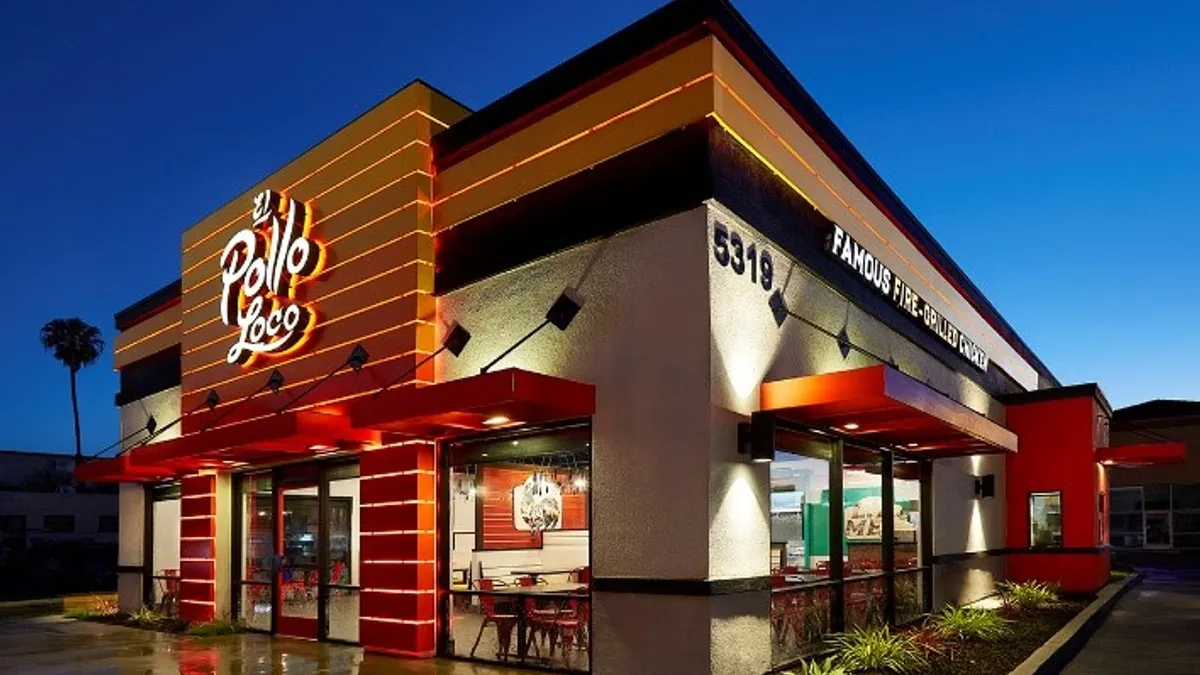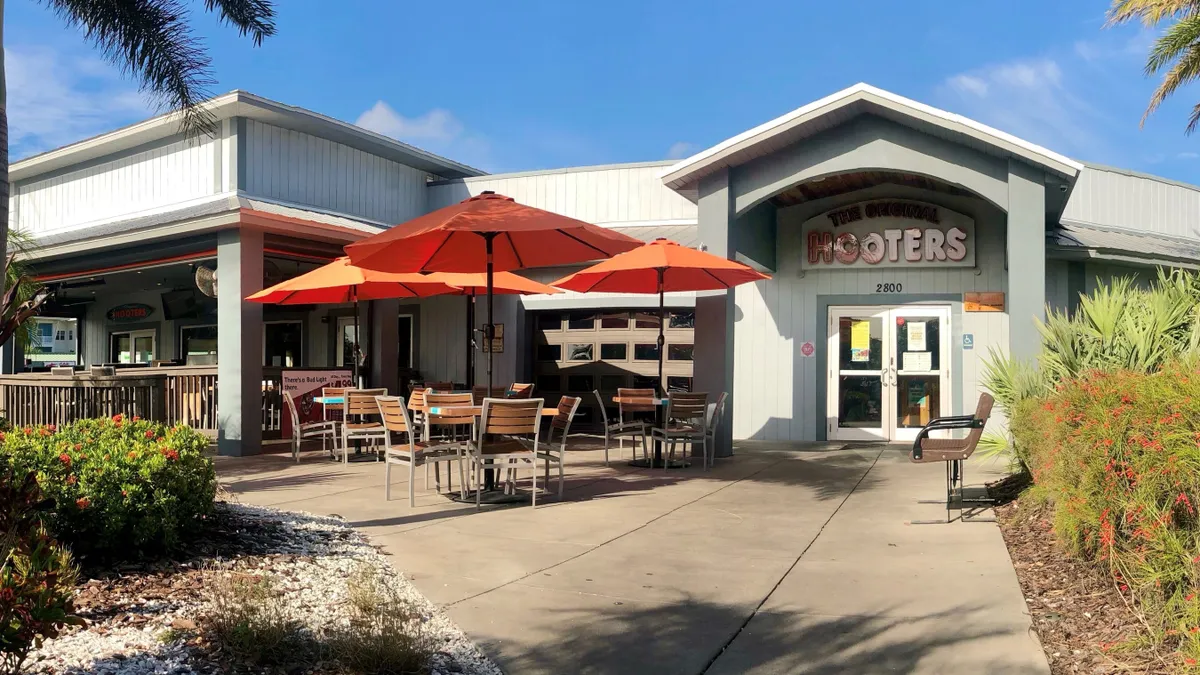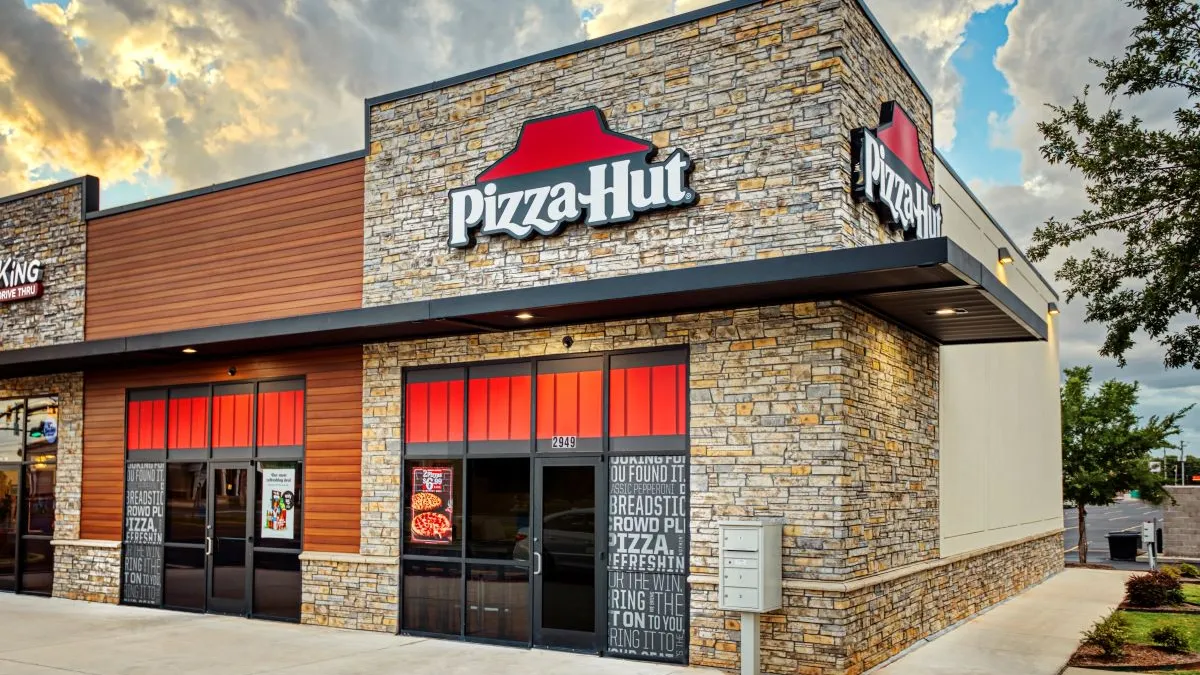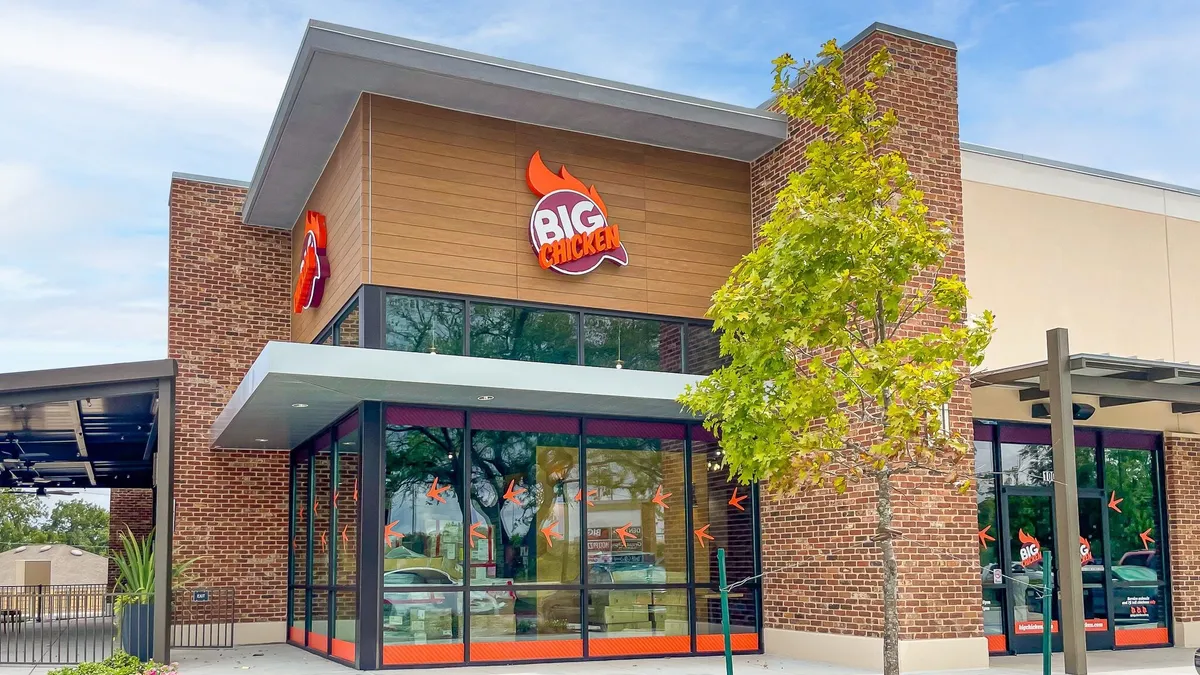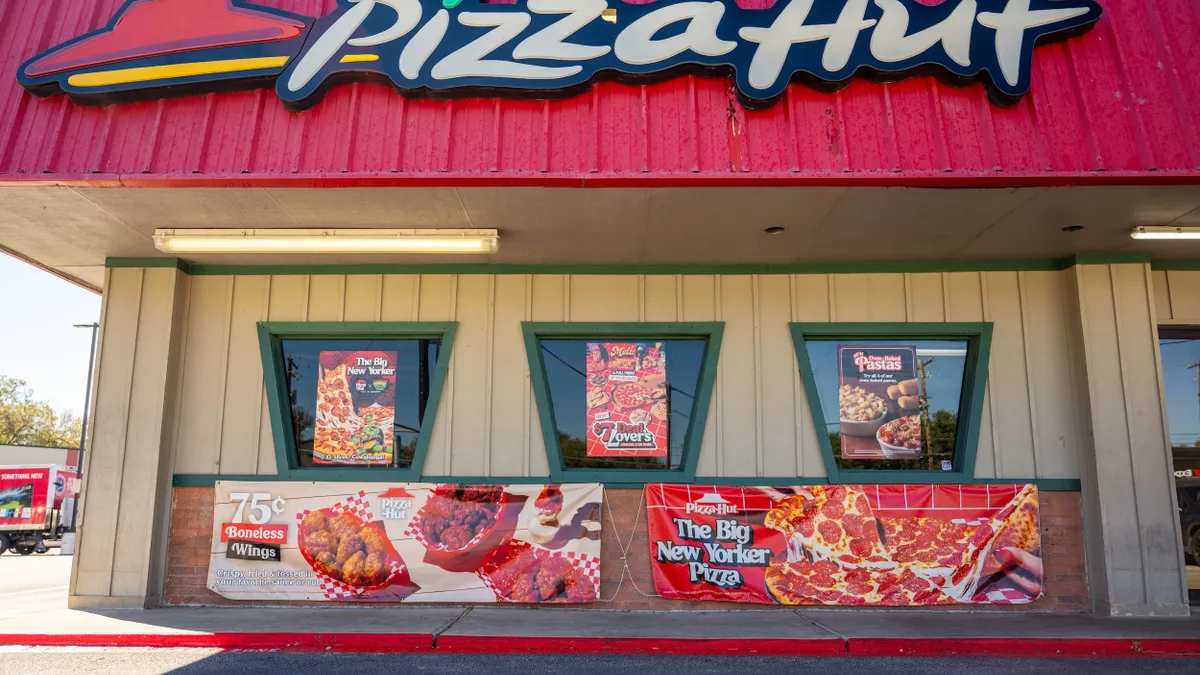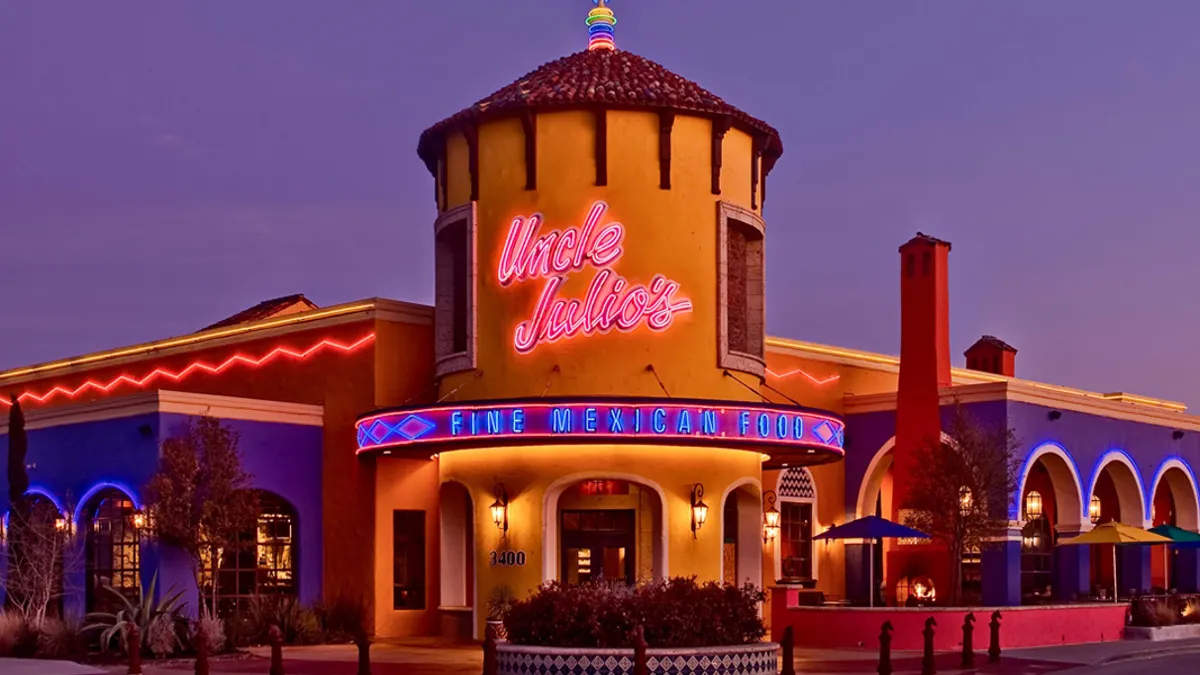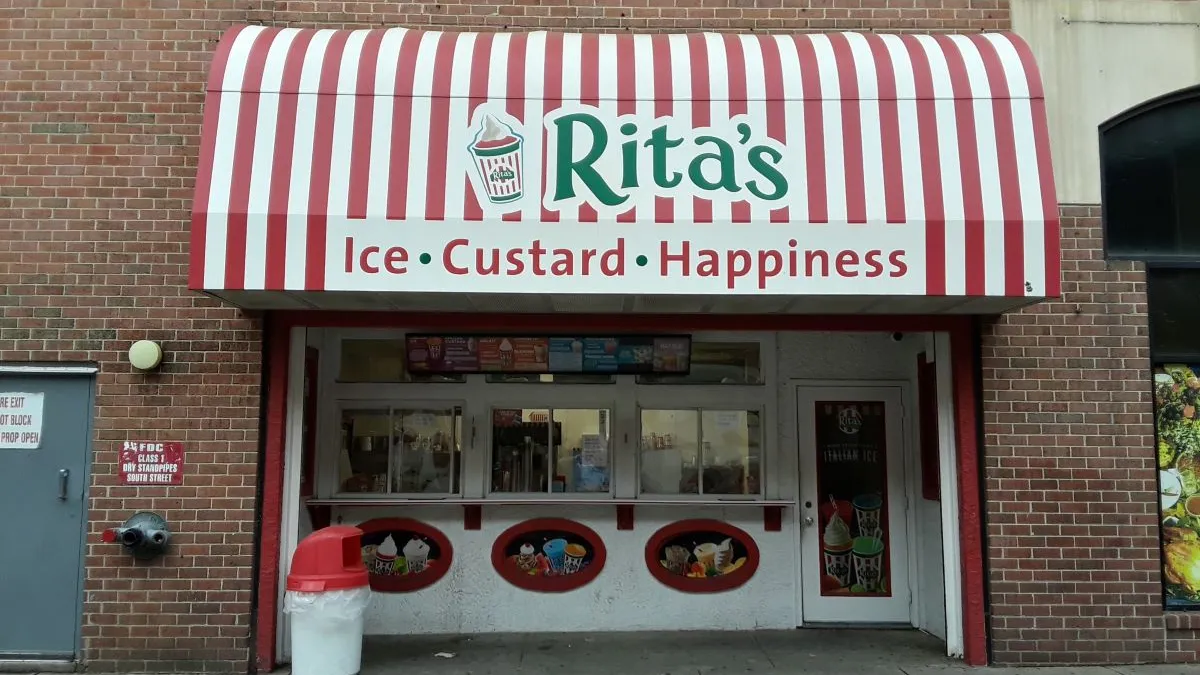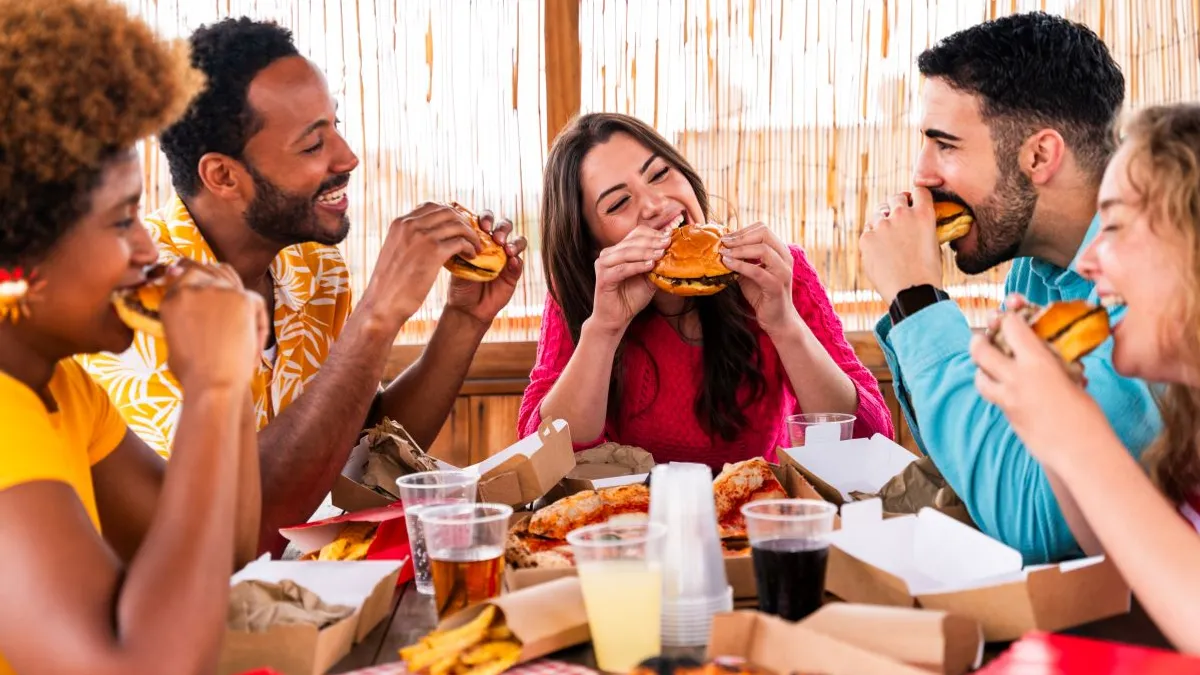This story is part of a series on the trends that will shape the industry in 2021. You can find all the articles on our trendline.
When Inspire Brands bought Dunkin' Brands for $11.3 billion in October, it signaled that restaurant merger and acquisition activity hadn’t been completely extinguished by the pandemic. While activity stalled in March and April, it started to percolate in the late summer as same-store sales showed signs of recovery as dining rooms reopened.
After almost a year of adjusting operations, shifting to off-premise and working with a reduced labor force, many chains are seeing profitable margins and are starting to look to the future. Experts expect dealmaking to only ramp up with all eyes focused on the chains that are surviving.
"There are going to be absolutely specific circumstances where there are well-capitalized strategic players that are looking to participate more fully in the limited services side of the landscape and will be aggressive to buy strongly performing businesses," Josh Benn, managing director and global head of restaurant, food and consumer corporate finance at Duff & Phelps, said. "M&A is going to continue to build."
Private equity remains hungry for both franchisors and franchisees, and deals that were stalled during the pandemic could occur in 2021, Tom Wells, managing partner at private equity firm 10 Point Capital, said. Predominant transactions will likely be buyouts of the whole business, similar to the Inspire/Dunkin’ deal, Wells said. Lenders still have an appetite for restaurants and supporting buyouts, he said.
More potential sellers are willing to sell now, especially after enduring the impact of the pandemic, said Greg Seltzer, partner at Ballard Spahr, who works with midsize restaurant organizations.
It's just a matter of when buyers will be ready to pull the trigger on deals, he said.
"There are probably clients in my sphere that would entertain a deal at the right price," Seltzer said, adding that there weren't a lot of buyers committing cash to deals last year.
The types of deals that won’t likely happen
Some firms, for now, will be wary of concepts that haven't done well during the pandemic. The kind of high-growth, minority deals that have occurred in 2018 and 2019, especially with experiential concepts, will likely have to wait until consumer traffic goes back to normal, Wells said.
For example, Cracker Barrel pulled out of its $140 million investment in Punch Bowl Social after the dining room closures dramatically impacted the once high-growth chain’s operations. Several months later the eatertainment chain filed for bankruptcy.
But interest in concepts like Punch Bowl Social, which appeal to younger demographics, will likely return quickly once the pandemic ends, Wells said.
Some firms are moving away from restaurants all together. In 2020, Sun Capital filed for bankruptcy or sold five restaurant brands, including Boston Market, Johnny Rockets and Friendly's, according to The Wall Street Journal. Its only remaining restaurant investment at the start of 2021 is Smokey Bones.
Large groups that have notoriously grown through leveraging transactions with debt will probably be fewer and farther between, especially because the pandemic exposed weaknesses of balance sheets that have too much debt and tripping covenants, Shauna Smith, CEO at private equity firm Savory, said.
A lot of transactions will need to be creatively structured with less debt this year, Smith said, adding that Savory does not use debt and acquires businesses with cash from its fund.
Large investment firms are also showing interest in smaller brands and providing smaller investments, Smith said. These firms have traditionally invested in leading brands with 20, 40 or 50 units and are now more willing to invest in companies that are younger, Smith said.
Overall, Smith expects consolidations, bankruptcy transactions, opportunistic investing and strong brands gaining more traction during 2021 based on activity she observed at the end of 2020.
Cheap deals available with distressed businesses
Some concepts may have no choice but to sell. Those that were challenged before the pandemic could have run out of money or had issues with lenders, Wells said.
"There's been more acknowledgement that there's generally a reason some of these brands are failing, [be that] consumer trends [or] long-term management," Wells said. "Those are really, really hard to fix and there's definitely an acknowledgment of that."
More distressed M&A activity is expected in 2021, especially with the second wave of COVID-19 taking its toll on the industry, said Joseph Humke, a partner at Ballard Spahr, who works with private equity clients.
"I'm not sure that industry players who made it through this far are going to be able to endure another significant shutdown," Humke said.
This is creating more circumstances where buyers can come in and pick up these businesses at a discounted price, Seltzer said.
Friendly's declared bankruptcy in November and agreed to a $2 million sale to Amici Partners Group while Le Pain Quotidien’s U.S. arm declared bankruptcy in May and sold itself for $3 million to Aurify Brands, for example. Aurify Brands also bought substantially all of Maison Kayser's assets out of bankruptcy and plans to convert those properties into Le Pain Quotidien locations.
"I'm not sure that industry players who have made it this far are going to be able to endure another significant shutdown."

Joseph Humke
Partner, Ballard Spahr
"Bankruptcies, especially in the dining and hospitality area, will certainly increase … into the winter months [with] some of those concepts realizing that there's not going to be this quick turnaround through the winter months as some people optimistically hoped for," Craig Ganz, partner at Ballard Spahr, said.
While distressed deals could be in vogue during the early months of the year, deals out of bankruptcy aren’t likely to be prolific, Seltzer said. Buying a concept out of bankruptcy has inherent risks, including the likelihood the company could return to bankruptcy at a later date, Ganz said.
Instead, buyers are likely going to determine which organizations and small chains are close to liquidation or bankruptcy and make a deal with its board of directors to acquire the company before it hits bankruptcy, Seltzer said.
"Filing for bankruptcy is very expensive," Seltzer said.
Seltzer anticipates distress is going to be regional and seasonal, especially when it comes to winter. This fractured state of distress could last through March or April, he said.
How closures are increasing buyer appetites
As bad as some chains are doing, independents are doing far worse, Michael Schaefer, global lead for food and beverage at Euromonitor, said. Thirty percent to 50% of independent, full-service restaurants shutting down in the U.S. by the end of the year is not out of the question, he added.
"I think at least in the near- to mid-term — in the next two to three years — we absolutely could be seeing less diversity and less diversity in chains, too. Not every chain is going to come out of this," Schaefer said.
Chains with some financial resources are much better to ride this out and benefit from an upswing when the industry is smaller in terms of stores, Schaefer said.
That may not necessarily be a bad thing for surviving restaurants, analysts said.
"When the dust settles, the supply/demand balance that you will find is going to be considerably different than what was happening from 2010 to 2019 … when you had a massive oversupply of restaurants in the market," Benn said.
Fewer restaurants will lead to comparable store sales growth on the other side of the COVID-19 period, Benn said. Less supply will mean more real estate opportunities that are giving financial investors more conviction if they can find a good business that might have a troubled balance sheet or fallen on difficult times, but is a business that could flourish post-pandemic.
"When the dust settles, the supply/demand balance that you will find is going to be considerably different than what was happening in 2010 to 2019 ... when you had a massive oversupply of restaurants in the market."

Josh Benn
Managing director and global head of restaurant, food and consumer corporate finance, Duff & Phelps
Businesses that don't really differentiate from others likely won't be attractive to buyers, Benn said. These include some legacy casual dining establishments, which often don't have tech integrated well into their operations and where alcohol represents a small portion of business. They also don't typically draw the coveted millennial crowd, Benn said.
But those businesses, whether it be full-service or fast casual, that appeal to younger demographics, have strong technology backbones and communicate effectively with their consumer base will attract attention, Benn said.
These restaurants will likely have strong alcohol sales of 30% to 40% since that means they have an environment that this consumer set wants to experience, Benn said. Asian concepts are also highly attractive, especially sushi because people aren’t likely to make sushi at home, Benn said.
"When it is clearly safe to go out and the virus is more under control than it is now, you’re going to see a flood of demand to go back to those types of restaurants," Benn said.
Betting on the best concepts
Companies that will be top of mind for an acquisition are those that can or have already combined takeout and delivery and have steady consumer loyalty, Schaefer said. Dunkin', for example, had all of these attributions, as well as the contactless experience.
Because of the pandemic, many restaurants have also found ways to make their business models more efficient, especially with their personnel, Seltzer said. These operators are able to better address their labor needs, even with reduced staffing, that have helped grow their bottom lines. The utilization of outdoor seating has also helped increase top lines for a lot of restaurants too, he said.
"I think if you look around some corners in 2021 and 2022, these restaurants are going to operate at a way more profitable rate going forward," Seltzer said. "There will probably have been some elimination of competition [with] some of the less well kept, lower capitalization businesses … not going to make it through."
Entities that have strong brands within a local geographic area that could grow nationally will be targets, especially brands that can integrate with another brand or concept, Seltzer said.
Private equity firms are also looking to put money behind a management team to help them grow from 12 locations in one geographic location to 100 locations across the country, Seltzer said.
"I think there are dozens and dozens of brands … that are ripe for private equity to come in and diversify," Seltzer said. If there is a pub or a beer place, for example, it could add a fast casual to diversify their ownership and holdings. That could also mean a restaurant company could lease one space, but have two brands within it, similar to how Dunkin’ has Baskin’ Robbins in some of its locations, he said.
Restaurants have already been buying other restaurants to diversify their portfolios in the last two months. Saladworks' parent company bought fast casual brands Garbanzo Mediterranen Fresh and Frutta Bowls and formed a new holding company called WoWorks in December. Capriotti’s Sandwich Shop bought Wing Zone in early January.
Strong brands that may be undercapitalized and need a partner will be among those looking for buyers, Humke said. But buyers are going to have to pay up to get these high quality brands.
With such a high demand for quality assets over the past 10 years, especially in the past five, sellers are getting much higher values for their businesses, Humke said.
"I don't think there are going to be bargain-based valuations unless there is a distressed situation," Humke said.
While analysts expect the coming months to continue to be a challenge, the vaccine distribution gives many hope that things could soon go back to normal with people dining out more.
"Hopefully there'll be a lot of discretionary dollars … once people are excited and able to go out and enjoy a bite to eat," Humke said.
This could mean a quick return on investment for buyers of these robust brands, and even more activity in the market as buyers think about the future.
"There are transactions that are happening for incredible brands that have just had balance sheets turned upside down," Benn said. "There's a lot of activity percolating."








